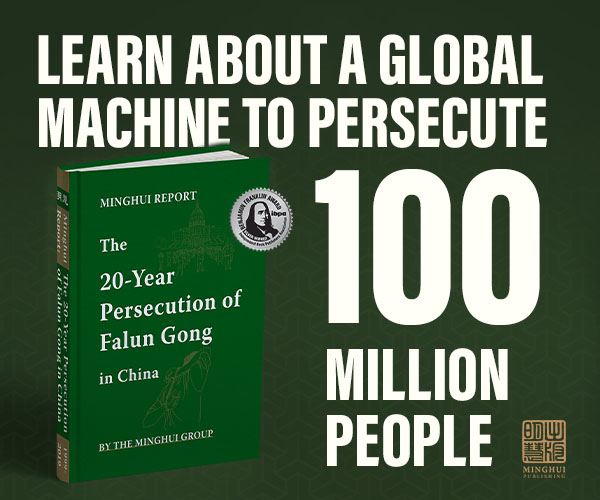(Minghui.org) I watched Shen Yun’s original opera “The Stratagem” recently and was deeply touched. First of all, I would like to thank Master for such an excellent production, which uses traditional singing methods and tells a true story from China’s history. The music is soul-stirring and the positive characters depicted have such heroic demeanors. I watched it three times online and was moved to tears each time. I would like to share some of my enlightenment about cultivation after watching the opera.
The Importance of Fulfilling One’s Vows
In the opera, court official Wang Yun endured much humiliation and heavy burdens in coping with the difficult situation at that time. He began his official career when he was quite young. He was a well-educated scholar with aspirations to repay the emperor’s kindness and to ensure that the people lived and worked in peace and contentment.
When treacherous and tyrannical Dong Zhuo bullied the weak emperor and dominated the court of the Eastern Han dynasty, Wang Yun didn’t give up despite tremendous pressure in order to fulfill his vow to uphold justice and help stabilize the society, even at the cost of his own life.
Think about it: Wang Yun, in his position as a high-ranking, well-paid court official, could have easily cooperated with Dong Zhuo to his own benefit and would have had a good life. But he refused to do that and wore himself out to try to get rid of traitorous Dong Zhuo and his followers, just to fulfill his vow.
We, as Dafa disciples in this lifetime, also made pledges to fulfill when we came to this world. We need to reflect on ourselves and see if we have forgotten our vows over time. Are we muddleheaded? Have we failed to do well the three things Master has told us to do? Have we wasted much precious time?
The Selfless Daughter and Father
In the second scene, in Wang Yun’s back garden, his adopted daughter Diaochan was deep in thought. Instead of entertaining thoughts of romance and a talented husband, all she wanted to do was to repay Wang Yun for his kindness in bringing her up.
When Wang Yun saw Diaochan, a plan to tackle Dong Zhuo came to him. Diaochan’s response to the idea also touched my heart deeply. She did not think about herself; her only concern was that, if she failed, Wang Yun and his whole family would be rounded up and beheaded.
Her selflessness was very touching. An ordinary young lady in ancient China could be so broadminded, with no concern for herself! Today, as a Dafa disciple, how many times have I been that selfless when I found myself in adverse situations? Sometimes I found myself so far short of what Master expects of us—to “attain the righteous Enlightenment of selflessness and altruism.” (“Non-Omission in Buddha-Nature,” Essentials for Further Advancement)
At one point, Wang Yun knelt down on one knee and said to Diaochan, “I hope to save millions of lives from danger.” Again, I was moved to tears by the scene. As a Chinese saying goes, “To maintain his dignity, a man should never casually kneel down.”
The fact that Wang Yun knelt down to his adopted daughter showed his broad and selfless mind for the sake of the people and society, without which he would not have been able to do that.
The above are just some of my thoughts from watching this opera at my current level of understanding. I feel that although Master is far away from us physically, he has been caring for the people in China all along. Oftentimes, I feel deeply touched by Maser’s immense compassion for us all.
Master has not taught the Fa publicly for the past few years, and there have been no photos of Master teaching the Fa at Fa conferences, either. However, from this opera, I feel that Master is watching what is happening in China all the time and always has the salvation of people at heart. As Dafa disciples in mainland China, we must continue to cultivate ourselves well and save more people.
Thank you, Master! Thank you, Shen Yun!
Editor’s note: This article only represents the author’s understanding in their current cultivation state meant for sharing among practitioners so that we can “Compare in studying, compare in cultivating.” (“Solid Cultivation,” Hong Yin)
Views expressed in this article represent the author's own opinions or understandings. All content published on this website are copyrighted by Minghui.org. Minghui will produce compilations of its online content regularly and on special occasions.
Category: Improving Oneself










